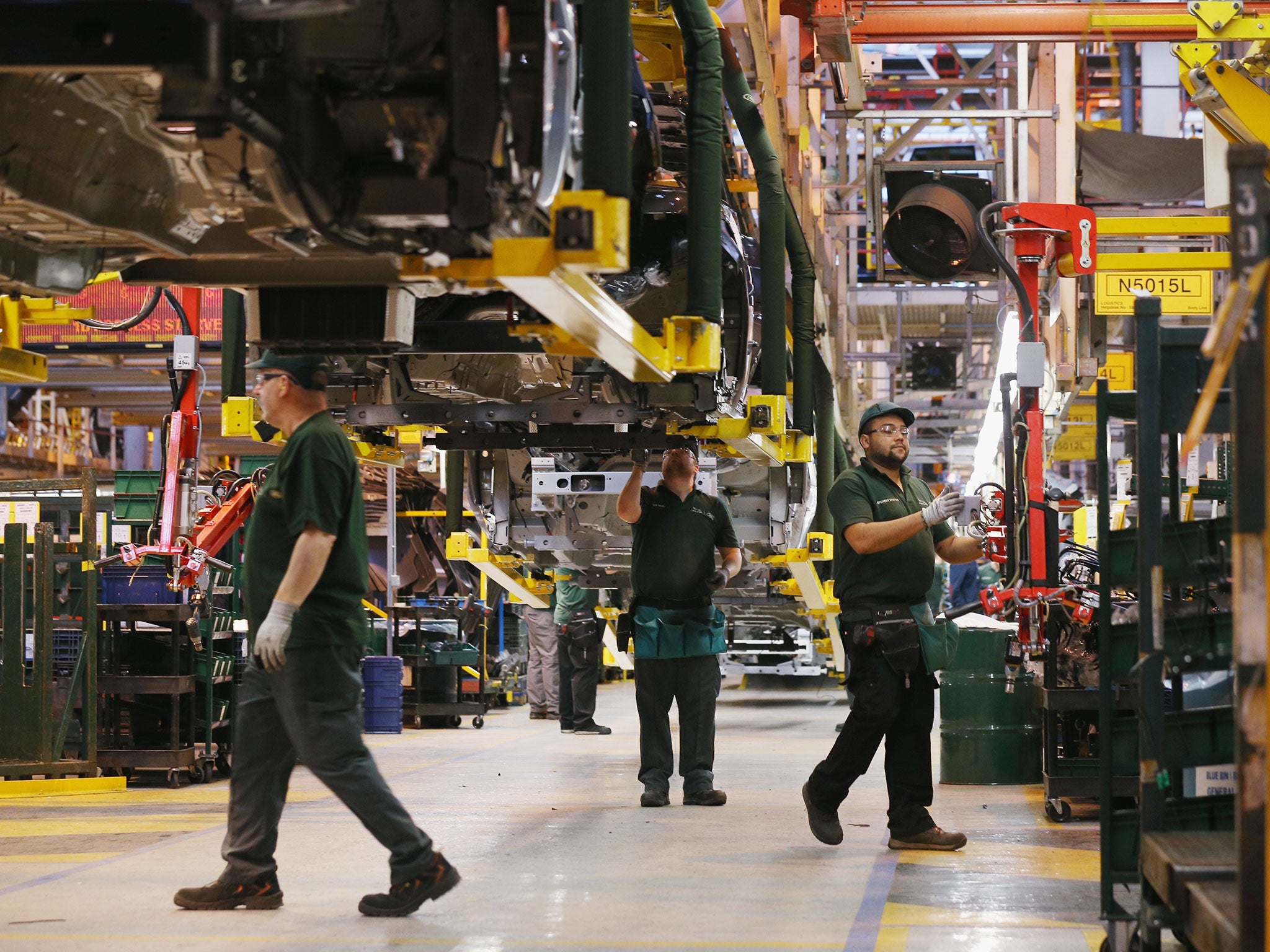CBI says wage rises are on the way at last
After a 'job-rich' recovery, the employers' group predicts that sustained growth will translate into pay increases above the rate of inflation

British workers can look forward to proper pay rises over the next two years, during the next stage of the "job-rich" economic recovery, according to the Confederation of British Industry (CBI).
Speaking ahead of the annual conference tomorrow, where the need to boost wages will be debated, John Cridland, the director-general of the CBI, told The Independent on Sunday: "We've had a jobs-rich recovery and if we'd had higher wages to date we would have fewer people in work."
He added that keeping people employed and creating new jobs has been "the priority", but now "the balance needs to shift to more earnings growth". "We need people to feel they have a stake in the economic recovery," Mr Cridland explained. "And we need people to have the money to spend … to keep the recovery sustainable."
Workers can expect to get meaningful pay rises in the next two years, he said. "We are predicting that average rises, which have been just under 1 per cent this year, will be 2 per cent next year and 3 per cent in 2016 – which means that, in the next two years, they will be nicely above levels of inflation."
And companies that can afford to should "aspire" to pay their staff the living wage, he added.
Although the national average pay rise this year is less than 1 per cent, in areas where there are skills shortages earnings "are already a lot higher", Mr Cridland said. "If you are a bricklayer you can almost name your own wages at the moment because we have a shortage of bricklayers to build the houses we need to build."
In its latest economic forecast, released today, the CBI says the prospect of a better financial future is "solid" and predicts steady growth over the next three years.
Britain is outperforming other G7 countries, with the fastest GDP growth rates in the G7 since the start of 2013; the British economy is expected to grow 3 per cent this year, and 2.5 per cent in 2015 and 2016.
"Growth in the UK remains solid, as the recovery has become more ingrained," according to the CBI.
The recovery is partially down to a surge in investment from private companies – which now account for about 30 per cent of GDP growth since the middle of 2009, rather than around 5 per cent previously. This "bodes well for the sustainability of the recovery", the report says.
"The service sector has held up well and we've seen an encouraging pick-up in business investment, with firms looking to boost IT spending. Consumer spending is holding up as the UK economy continues to create jobs," Mr Cridland said.
The CBI forecast also reports a sustained rise in consumer spending, which has "increased for 13 consecutive quarters". This is set to continue "in the near-term", aided by "strong employment growth, high consumer confidence and ongoing improvements in credit availability".
The number of people out of work is set to fall by more than a quarter of a million by 2016, when the number of unemployed people will be 1.74 million – down from the 2 million currently jobless.
Ironically, for a country which has historically been a trading nation, Britain's "net trade provided no support to GDP growth". And the recovery is threatened by risks such as a "cloudier" world economy, a "weak" eurozone, and conflicts in the Middle East and Ukraine, all of which "are compounding the general climate of uncertainty among businesses".
"I cannot remember a time when the cocktail of political risks that British business is facing is more volatile than it is today," commented Mr Cridland. "They are having an impact on British business confidence. What we want British foreign policy to be able to do is to try to de-escalate the tensions, create a situation where there is less risk," he added.
Political uncertainty ahead of next year's general election and a possible referendum on EU exit in 2017 is a major factor in a "greater sense of caution among businesses", according to the forecast. And the "persistently weak performance of productivity and real wage growth remain key risks to securing more sustainable growth".
The CBI, which represents 190,000 businesses, is not known for sharing the view of trade unionists. But as part of the Business 20 Forum, it is joining the TUC in calling on Prime Minister David Cameron to fight for better jobs and better pay at this week's G20 summit in Australia.
Join our commenting forum
Join thought-provoking conversations, follow other Independent readers and see their replies
Comments